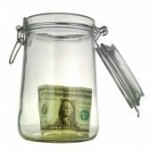 Canadians have until March 1st to make an RRSP contribution towards their Registered Retirement Savings Plan (RRSP) in order to take advantage of a tax deduction for the 2010 tax year.
Canadians have until March 1st to make an RRSP contribution towards their Registered Retirement Savings Plan (RRSP) in order to take advantage of a tax deduction for the 2010 tax year.
Before you make this important decision, be sure to consider a few things:
Do you have the ability within your budget to make a contribution?
If you haven’t been contributing regularly all year, have you set enough money aside in order to make a lump sum contribution?
If you will be dipping into your emergency funds in order to make your contribution or you will be left just scraping by, then perhaps it is wise to just hold off in making any contributions this year. Why? Because if you are depending on your RRSPs as a back up emergency fund then there is no point in putting money into an RRSP in the first place. There are just too many tax penalties and negative implications for making an RRSP withdrawal.


